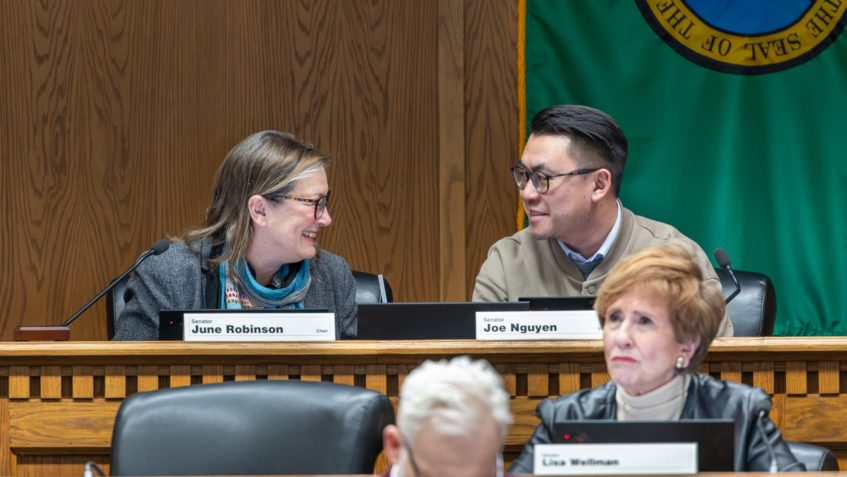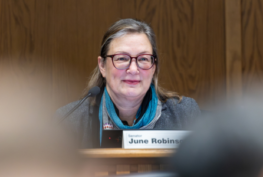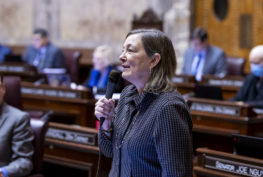OLYMPIA — Washington State Senate budget leaders unveiled a $71.7 billion supplemental operating budget plan Monday that increases support for behavioral health and public schools.
The budget adds roughly $1.9 billion in new spending to the two-year budget passed by lawmakers in April 2023.
“Many hours and conversations went into shaping our supplemental budget proposal, and I’m very proud of the result,” said Sen. June Robinson (D-Everett), chair of the Senate Ways & Means Committee. “It continues to showcase our values and priorities by making smart, targeted investments that give our neighbors and children the support and resources they need to thrive in Washington state.”
The proposal includes over $242 million in new spending for K-12 schools, including funding for student meals, special education, and staffing needs, like paraeducators.
It invests nearly $252 million in new spending to support efforts to transform the state’s behavioral health system, including funding for facilities and staffing. In addition, $36 million from the opioid settlement agreements will boost treatment for substance use disorder.
The budget also utilizes funds from the state’s new cap and invest program to invest in energy efficiency, reduce carbon pollution, provide assistance to help low-income families pay their utility bills, and prepare communities for climate impacts. Passed in 2021, the Climate Commitment Act imposes a statewide cap on carbon emissions and requires businesses to purchase pollution allowances that will act as an incentive for them to curb emissions.
“This budget continues the transformative investments we’ve made to benefit families, businesses, and our environment with the help of the Climate Commitment Act,” said Sen. Joe Nguyễn (D-White Center), vice chair of the Senate Ways & Means Committee. “What we’re presenting today reflects the values and priorities of Washingtonians. It helps families in need, creates jobs in our growing clean and green economy, and sets future generations up to succeed with support for our schools, early learning, and childcare. These are smart, effective investments that Washingtonians can’t afford to lose.”
The budget plan includes no new general taxes and complies with the state’s four-year balanced budget requirement. It leaves $4.3 billion in total reserves at the end of the biennium.
It will receive a hearing in the Senate Ways & Means Committee 4 p.m. Monday.
The full budget document is available here.
Other highlights of the 2024 supplemental budget proposal:
- $135.9 million to operate 72 beds at Olympic Heritage Behavioral Health
- $20 million for the University of Washington Behavioral Health teaching hospital
- $49.6 million for paraeducators
- $13.5 million for special education
- $19 million to establish a psychiatric residential treatment facility in Lake Burien for youth, aged 12-18, with complex needs
About the supplemental budget:
Supplemental budgets are passed in even-numbered years and allow the state to make mid-course corrections to the two-year budgets passed in odd-numbered years. It gives the state the opportunity to adjust spending to keep families safe, provide high-quality education, and address other emergent needs like public health.



